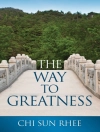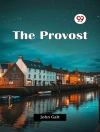In ‘Alton Locke, Tailor and Poet: An Autobiography, ‘ Charles Kingsley intertwines the tumultuous life of a young tailor-poet with the social and economic challenges of Victorian England. This semi-autobiographical narrative captures a vivid tapestry of the era, exploring themes of class struggle, artistic aspiration, and moral integrity. Kingsley’s poignant prose blends lyrical passages with biting social critique, reflecting his deep concern for the plight of the working class and his commitment to social reform. The book mirrors the influence of the Romantic movement, shaping character development alongside a passionate exploration of the interplay between art and labor. Charles Kingsley, an esteemed Victorian novelist, theologian, and social activist, draws upon his own experiences and observations from his early life, which profoundly shaped his worldview. Growing up in a milieu marked by social disparity and intellectual fervor, Kingsley’s engagement with various social reform movements and his friendships with notable figures, such as John Ruskin, provided a rich backdrop for this narrative. His deep understanding of literature, theology, and social issues informs the authentic voices within his characters, making their struggles both relatable and impactful. ‘Alton Locke’ is not merely a story of personal triumph; it serves as a compelling commentary on the broader societal dynamics of the time. I recommend this book to readers interested in the intersection of art and social justice, as well as to anyone who seeks to understand the human spirit’s resilience amid adversity. Kingsley’s work remains a poignant reminder of the continuing relevance of class issues in today’s world.
Over de auteur
Charles Kingsley (1819-1875) was a versatile and influential figure in Victorian England, recognized not only as a writer but also as a social reformer and Anglican priest. Kingsley’s literary output includes a range of genres, from social novels and historical romances to children’s literature. ‘Alton Locke, Tailor and Poet: An Autobiography’ (1850) is one of his well-known social novels, offering a vivid portrayal of the Chartist movement and its implications on the working classes of 19th-century England. A significant part of his literary style was his advocacy for Christian socialism and his concern for social justice, which permeated much of his writing. Kingsley was also known for his work ‘The Water-Babies, A Fairy Tale for a Land Baby’ (1863), which blended fantasy and morality, reflecting his imaginative prowess and command of narrative. His contribution to literature was paralleled by his engagement in educational and social issues, serving as a Professor of Modern History at Cambridge University, and his role in the founding of the Working Men’s College in London. Kingsley’s influence extended beyond his lifetime, impacting both literary and social spheres in Victorian society and beyond.












